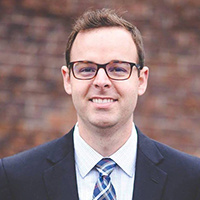Kirkman Misdemeanor Lawyer, Iowa
Not enough matches for Kirkman Misdemeanor lawyer.
Below are all Kirkman Criminal lawyers.
Scott Miller Thorson
✓ VERIFIEDAccident & Injury, Criminal, Workers' Compensation, Estate
Scott Thorson grew up in Omaha, Nebraska, and attended Nebraska Wesleyan University, where he graduated in 2008. Mr. Thorson received his legal traini... (more)
FREE CONSULTATION
CONTACTBrian S. Rhoten
Lawsuit, Workers' Compensation, Criminal, Bankruptcy & Debt, Mass Torts
Status: In Good Standing
FREE CONSULTATION
CONTACTLeslie G. Peters
Criminal, Civil Rights, Divorce, Bankruptcy
Status: In Good Standing Licensed: 27 Years
Joel Christopher Baxter
Landlord-Tenant, Real Estate, Criminal, Property & Casualty
Status: In Good Standing Licensed: 22 Years
Larry J. Melcher
Family Law, Criminal, Bankruptcy, Personal Injury, Medical Malpractice
Status: In Good Standing Licensed: 32 Years
FREE CONSULTATION
CONTACTDrew Harry Kouris
DUI-DWI, Administrative Law, Bankruptcy, Personal Injury, Car Accident
Status: In Good Standing
Alan David Martin
Divorce & Family Law, Criminal, Personal Injury, Car Accident


